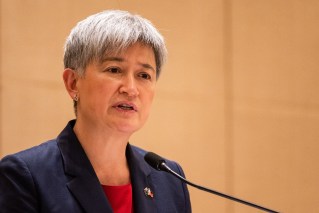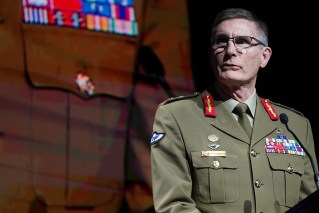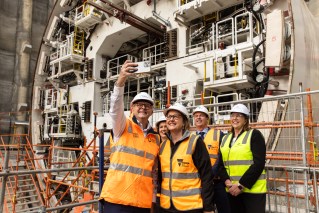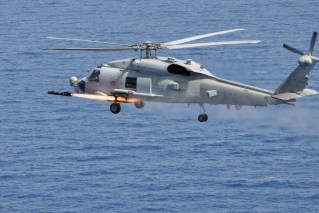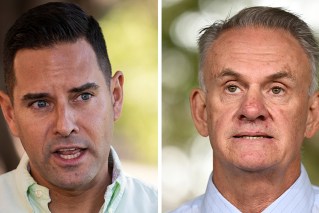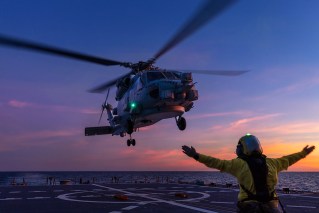The irony of Albanese’s big trip to Washington

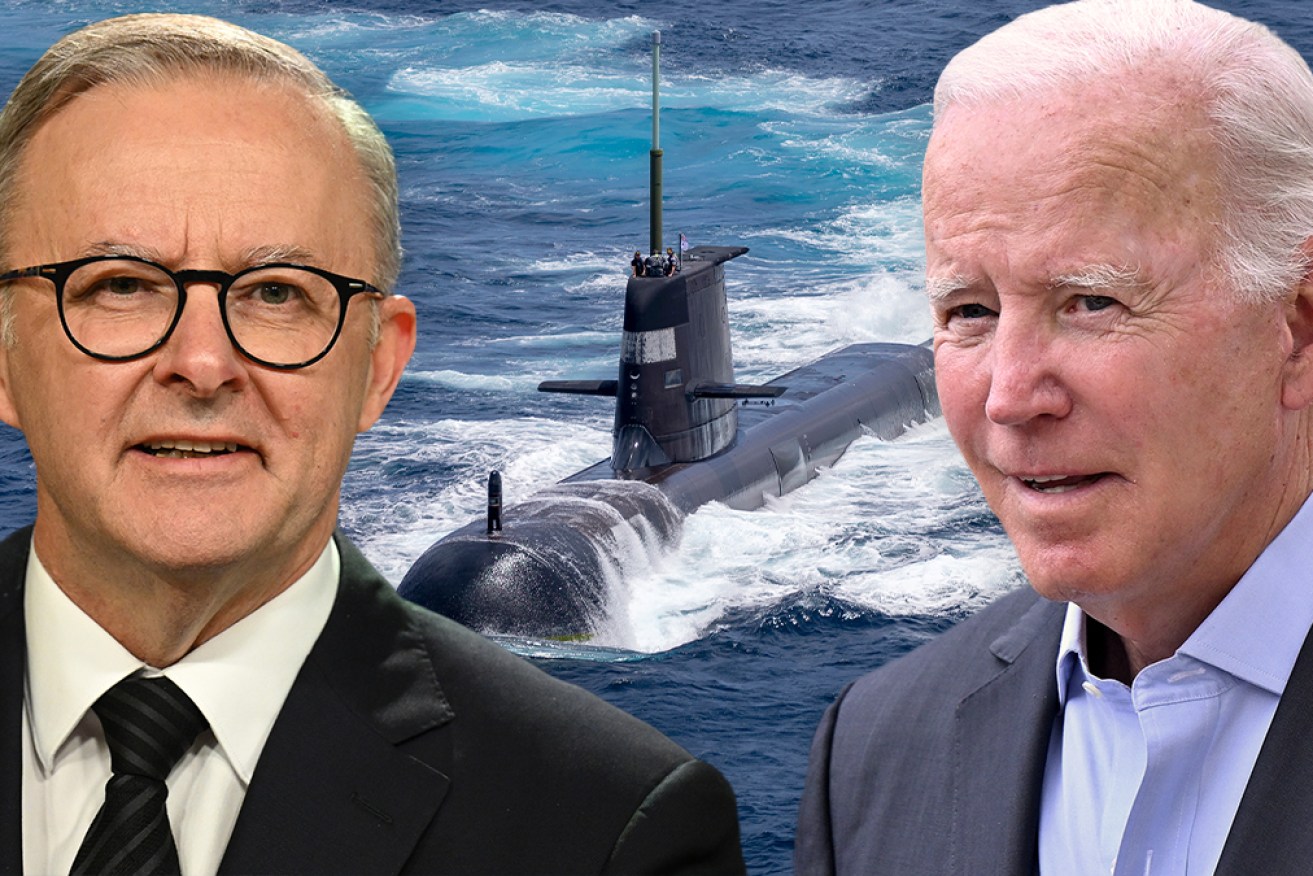
The AUKUS pact cements Australia's defence relationship for decades to come. Photo: Getty/TND
Prime Minister Anthony Albanese will make a trip to Washington next week to announce a deal to acquire nuclear-powered submarines as his dream run on the international stage continues.
Little is on the record about Mr Albanese’s visit to see Mr Biden next week but there has been some excitable speculation.
Mr Albanese only spoke of the visit to the US at a press conference on the tarmac at Perth Airport before flying to India to see Indian PM Narendra Modi, in what could only have been interpreted as a massive power move.
“I look forward to the continuing engagement,” he said
Unlike diplomatic success he had mending fences with Xi Jinping or Emmanuel Macron, the PM could not claim the credit for the reflected glory he is expected to have after a week spent two of the world’s most powerful leaders (British Prime Minister Rishi Sunak will also be there).
Indeed, how little Mr Albanese knew about AUKUS before it was first announced is one of the more interesting bits of context for watching his trips this week.
The Times is reporting that Mr Albanese will appear alongside the President and British PM Rishi Sunak in San Diego where they will announce details about Australia’s forthcoming move to nuclear submarines and to reaffirm the grand alliance that surprised the world in 2021.
“Biden is coming out here to southern California next week and will make an AUKUS announcement alongside Australian and British leaders—possibly from a submarine,” one local with connections in government, Derek Grossman said.
The PM would not say more.
It has since been confirmed that UK Prime Minister Rishi Sunak will attend for three-way talks on the AUKUS defence agreement.
Sources familiar with the planning said that trilateral summit would take place in San Diego on Monday to unveil new details of the 2021 AUKUS pact conceived as part of efforts to counter China in the Pacific region.
Only two Australian PMs have recently been honored with a state visit to the Whitehouse in recent years, which involves four days of pomp: Scott Morrison and John Howard before him.
A major shift afoot
At an estimated $100 billion for eight submarines it will be the single biggest purchase Mr Albanese is likely to ever make (but only slightly more than his predecessor made a $90 b bid for a French deal before it went sour.
“We are entering an era where Australia will play a more direct role in supporting US military posture and operations in the Indo-Pacific,” said Ashley Townshend from the Carnegie Endowment for International Peace.
“It is an historic moment in the alliance.”
Critics such as Paul Keating says nuclear subs give Australian forces the technology to travel for distances not needed for defensive purposes, something which could raise tension and the risk of conflict in itself.
Beijing regularly denounces AUKUS as a plan for ”fuelling conflict” and the move has also drawn wider unease and from countries such as Indonesia.
At the National Press Club last week Mr Albanese affirmed AUKUS and said that Australia building up its capability would make the region more stable and should not be seen as provocation.
“AUKUS is about the future,” he said.
Dr Townshend also says AUKUS’ more immediate purpose is to share technology more effectively as all three members’ face growing competition from China.
“China’s investment and research into cutting edge technologies is progressing at breakneck speed and the United States is no longer no longer the world’s leading technological power,” he said.
“It’s the same strategic trends that have led the United States to rotate strategic bombers through northern Australia.”
One report last month suggested that bureaucracy and a culture of secrecy was still holding back the “second pillar” of AUKUS and the exchange of technologies like hypersonic weapons.
Details, details
But first Mr Albanese is expected to name the kind of submarines we’ll be buying and which of the other two allies in the AUKUS trio will construct them.
South Australia has made its customary bid for but the shift from diesel to nuclear submarines already risks leaving a hole in Australia’s military defences, which could mean the first two are built overseas.
Unconfirmed reports in a UK newspaper said two soon-to-be-completed British boats – 97 metres long and capable of making their own oxygen – HMS Agamemnon and HMS Agincourt were close to being sold for just under $4 billion.
Opposition Leader Peter Dutton last week said he believed British-made boats had design flaws – “unhelpful speculation” for which he was told off by the UK High Commissioner on Wednesday.
That Mr Albanese, who in his younger days protested against nuclear power and a few other things besides, should have the honour of meeting the President is something that cannot have gone unnoticed by Mr Dutton.
Less than 18 months ago when AUKUS was announced Mr Albanese still did not know about the plan until the day before, a report said, in what he slammed as a break with bipartisanship on critical foreign and defense policy.
How soon things can change.
As one writer unkindly noted last week as Mr Albanese was affirming the government’s support for the AUKUS pact, the subject was on Scott Morrison’s mind was on the subject too. Some 15 minutes before Mr Albanese took the stage, he posted on LinkedIn about having been recently interviewed for a podcast/ He illustrated that post with photos of him and Mr Biden.

